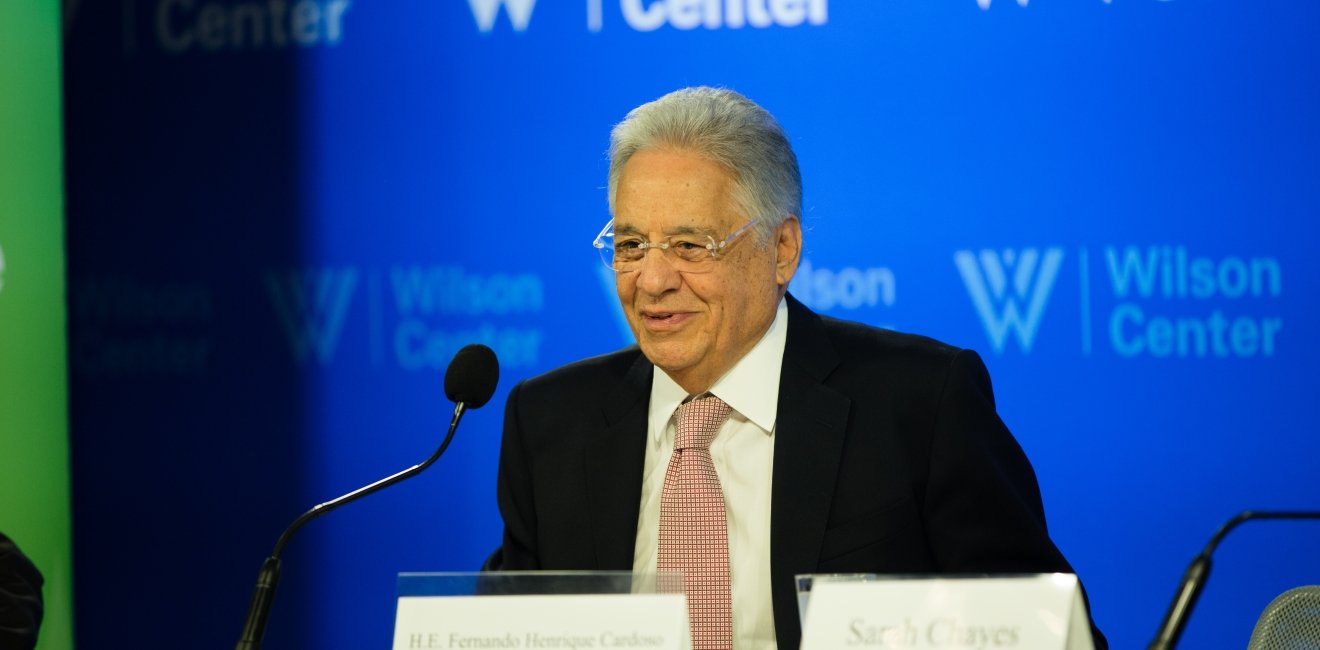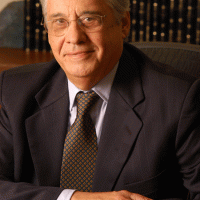
A blog of the Brazil Institute

The following op-ed was originally published in Portuguese by O Estado de S. Paulo and has been translated by Dora Saclarides. To read the original text, click here.
If we do not establish a democratic pillar now, we will get a leader who doesn’t know how to handle power.
When I was still in the presidency, I said that Brazil needed direction and tried to set its course. In this stormy corner of the world, full of domestic hardships, the lack of a definite path is perceptible.
With the end of the Cold War, symbolized by the fall of the Berlin Wall in 1989, the dominance of the United States became more apparent. Even before the end of the Cold War, as paradoxical as it may seem, during the Nixon government—which had Henry Kissinger as its the grand strategist— the western world began to approach China. With the death of Mao Zedong and the rise of Deng Xiaoping, the Chinese began to introduce economic reforms. Thus a period of extraordinary growth began at the end of the 1970s. Since the turn of the last century, China’s increasing importance in the global economy has become evident. In geopolitical terms, the Chinese deliberately sought a peaceful ascent, escaping the “Thucydides Trap” (that there will be war whenever a new power attempts to overthrow the dominant power).
As long as China did not demonstrate all of its economic and political potential, the impression was that the world had found a lasting equilibrium under the Pax Americana. Europe was integrated, the United States and most of Latin America benefited from trade with China, and Africa gradually consolidated the formation of its nation-states. The older superpowers, Germany and Japan, had adopted a “Western democratic vision” since the end of World War II. At the beginning of the 21st century, only the former Soviet Union, which had become the Russian Federation, was still an object of military distrust among the member states of NATO. The Arab-Muslim world remained a matter of concern.
Currently, the international picture is quite different. With Trump’s form of “diplomacy,” North Korea developing atomic weapons, Russia’s new ambitions, tensions in the [South] China seas, and terrorism, there are real fears about what lies ahead. The Japanese see North Korean nuclear missiles pass overhead, the Chinese are dormant, the United Kingdom left the European Union, the Russians took Crimea, and the Americans are leaving behind the Trans Pacific Partnership Agreement (TPP), opening space for the expansion of China’s influence in Asia and leaving South Americans that had stakes in TPP perplexed. The Mexicans are also perplexed, threatened by the dissolution of NAFTA, another one of Trump’s targets. America’s uneasiness may increase due to the consequences of China’s policy of constructing a new Silk Road, linking China to Europe through Asia and the Middle East, as well as the rapprochement between Beijing and Moscow.
It is within this fluctuating framework that Brazil must define its course. Whenever there are fractures among the world’s great powers, gaps open for “emerging powers.” There are opportunities for us to exercise a political role and there are economic paths that have opened. We are not bound to automatic alliances and, despite our political crises, errors, and difficulties, we are at a more advanced economic standing than during the Cold War era: we have created a modern agricultural system, we are the most industrialized country in Latin America, and we have advanced our modern service sectors, especially communications and financial services. We can have an impact on the world without arrogance, reinforcing our political and economic relations with our neighbors and other Latin American partners.
However, our alarming inequalities are a deadweight to the formation of a decent society, a condition for the exercise of any leadership. The lack of employment opportunities, healthcare, education, housing, and public security are still obstacles to overcome.
As a result of what we have already done, that what remains to be done, and the opportunities that exist, there is a certain anxiety among people. The political confusion, the discrediting of leadership and parties, is expressed in a lack of direction. Public opinion supports the efforts to raise ethical standards symbolized by Operation Car Wash, but [the people] want more. They want solutions for basic social issues, and also for the policy challenges that need to be overcome; otherwise, economic growth will continue to lag and the social situation will be unsustainable. Congress finally approved an “[electoral] threshold law” and the end of [party] coalitions in proportional elections. These were timid steps, with respect to how they were passed, but they are important for the future since they will lead to a reduction in the number of political parties, which will lead to better governance and perhaps less corruption.
However, who are the leaders who will light our way forward, instead of what lies behind? If we are to believe opinion polls, the politicians favored to win the 2018 election are more of a repetition than an innovation, although there are a few at the bottom of the polls that may gain more favorable positions with time. And good news can emerge. Some of those who are ahead still insist on their past glories to draw attention away from present adversities, and say little about how they would achieve their proposed goals for the future.
If we do not quickly organize a democratic pillar (against the political right, which is showing its claws)—one that does not insist on “regressive utopias” (as does most of the left); that understands that the contemporary world has a technical-scientific foundation that is exponentially growing and demands, therefore, quality education; that is popular and not populist; that speaks simply and directly about the issues of people’s daily lives—then we run the risk of seeing someone gain power who doesn’t know how to use that power or uses it for personal gain. And we risk losing this historic opportunity to determine our path forward.
Author

Explore More in Brazil Builds
Browse Brazil Builds
They're Still Here: Brazil's unfinished reckoning with military impunity


